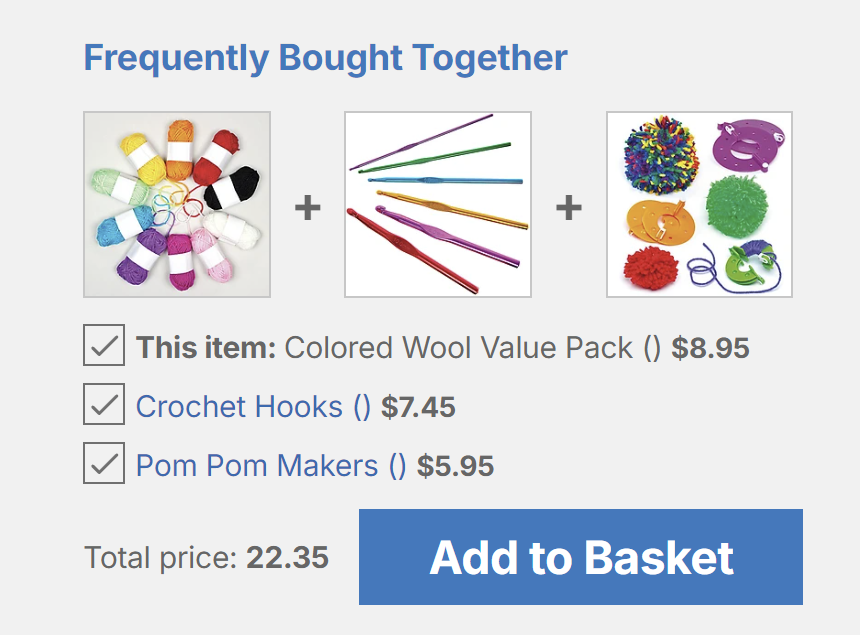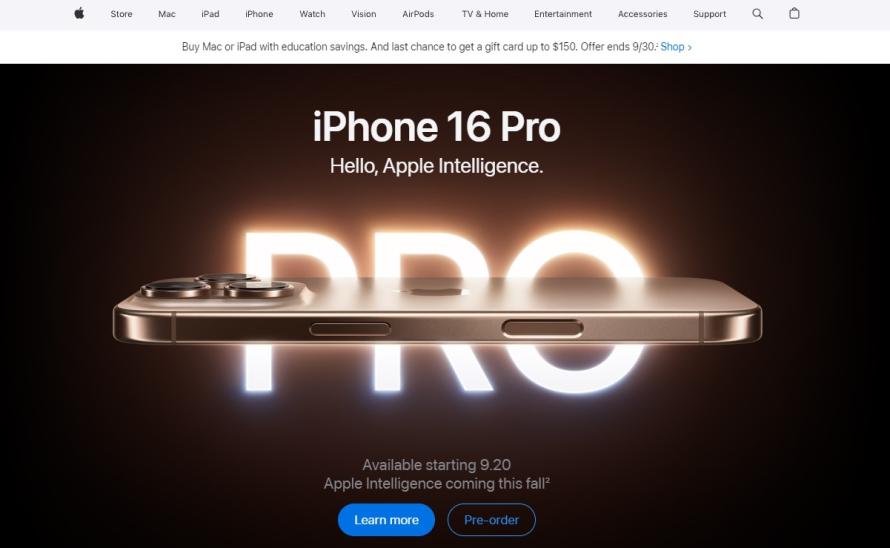Build a Winning E-Commerce Personalization Strategy: Step-by-Step
Delivering a personalized user experience is no longer a luxury but a necessity for e-commerce stores looking to boost engagement and increase sales. However, the practice is often seen as costly and complex to use. Many e-commerce businesses struggle with multiple components, such as managing customer data, delivering dynamic content or scaling personalization efforts across various platforms. However, modern solutions like AI-driven tools and integrated platforms change everything!
In this article, we’ll give you some actionable tips to help you build a winning e-commerce personalization strategy that overcomes these challenges and allows you to deliver tailored experiences to your customers!
What is Personalization?
E-commerce personalization is the practice of tailoring online shopping experiences to individual customers based on their behaviors, preferences and personal data. It’s more than just offering generic promotions – it’s about creating a shopping journey that feels unique to each visitor. Personalization typically involves algorithms and data analysis, which work behind the scenes to recommend products, customize content and craft unique interactions for each user.
Image

You may have already seen this when shopping for yourself. It could be personalized product recommendations that reflect past purchases, targeted marketing emails with special offers, or even dynamic content on your website that adapts to each user’s preferences. In some cases, even custom pricing can be offered to individual customers based on their shopping behavior.
Recent advancements in AI-powered recommendation engines and natural language processing (NLP) have made these personalizations more dynamic and effective. These technologies analyze vast amounts of data quickly, allowing you to deliver highly relevant shopping experiences to your customers. This shift benefits both businesses and shoppers, setting the stage for deeper engagement and stronger customer loyalty!
The Benefits of Personalization in E-Commerce
There are undeniable benefits to e-commerce personalization. By tailoring experiences to individual customers, you can increase customer engagement, improve conversion rates and foster stronger customer loyalty. In fact, a study found that 52% of customers now expect offers to be personalized – a significant rise from previous years. This shift demonstrates how important personalization has become in meeting customer expectations.
However, achieving effective personalization in e-commerce can be challenging. Traditional personalization engines can be costly and complex, requiring significant investment in both time and resources. For many store owners, the barriers to entry seem steep, especially with the high price tags attached to personalization tools.
But e-commerce businesses shouldn’t be put off. Advanced personalization delivers a strong ROI – research shows that stores implementing high-effort personalization strategies see 40% more revenue compared to those with basic efforts. And it’s now more affordable and easier to implement, thanks to modern integrations like Lytics and Pantheon.
Pantheon’s infrastructure is built to support advanced personalization without compromising performance. By integrating Pantheon with Lytics, store owners can access powerful, data-driven personalization strategies at a fraction of the cost of traditional solutions. This results in fast content delivery, high uptime and a smooth shopping experience for customers.
E-Commerce Personalization Strategies
Let’s take a look at actionable strategies that will allow you to enhance the customer experience in your store and increase revenue through personalization.
1. Give Real-Time Product Recommendations
Product recommendations are personalized suggestions based on a customer’s browsing behavior, purchase history and preferences. You’ve likely seen these as “Customers Also Bought” or “Frequently Bought Together” sections, which add value to the shopping experience by showing relevant products. When implemented effectively, product recommendations can significantly increase both customer satisfaction and revenue.
These recommendations are typically powered by data analytics and machine learning algorithms that can track individual behavior and suggest items accordingly. While large-scale e-commerce platforms like Amazon have mastered the art of product recommendations, smaller and medium-sized online stores can also leverage this technique. Whether it’s a first-time visitor or a repeat customer, real-time recommendations guide users toward products they’re likely to find appealing, boosting the chance of a sale.
Implementing product recommendations is an excellent entry point for e-commerce personalization, no matter the size of your store. It offers immediate results without being overly complex, making it accessible even to businesses just starting their personalization journey!
2. Serve Dynamic Content to Shoppers
Dynamic content refers to personalized website elements – like landing pages, banners or product offers – that change based on the shopper’s location, preferences or demographics. It takes personalization a step further by adapting the content a customer sees in real time, creating a more relevant and engaging experience.
Image

For instance, if you visit the Apple homepage, you’ll notice that the content adjusts to reflect your location and the products being promoted in your market. This is a great example of dynamic content in action, ensuring that each visitor gets an experience tailored specifically to them.
Dynamic content is typically managed through a CMS and can be made more effective with the help of a WebOps platform like Pantheon. Platforms like this offer content updates without compromising site speed. When paired with a customer data platform (CDP) or personalization engine like Lytics, you can offer the most relevant content without causing delays in page loading or user experience. By showing shoppers exactly what they want and when they want it, dynamic content improves engagement and can lead to higher conversion rates.
3. Set Up Intelligent Upsells and Cross-Sells
Upselling and cross-selling are two of the most powerful personalization techniques in e-commerce. These strategies allow store owners to offer additional or higher-value products based on what the customer is already interested in.
An upsell is when you encourage a customer to purchase a more premium version of an item they’re considering. For example, if a shopper is looking at a mobile phone, an upsell could be a recommendation to buy the latest model with additional features. Cross-selling, on the other hand, involves recommending complementary items, like a phone case or screen protector, to go along with a mobile phone purchase.
While upsells and cross-sells can be done manually, many smart e-commerce platforms now use machine learning algorithms to predict relevant product upgrades and complementary items based on customer data and purchase patterns. Not only does this increase the average order value, but it also streamlines the shopping experience, making it more convenient for customers to find everything they need in one place.
By integrating these personalized recommendations with a high-performance e-commerce platform like Pantheon, you can ensure fast, relevant and valuable suggestions for your customers, ultimately improving your store’s overall success.
4. Personalize Your Marketing and Communication
Personalized marketing is a form of e-commerce personalization that tailors messaging, medium and tone based on shopper’s data, preferences or habits. This type of personalization typically takes place outside the store via email campaigns or targeted ads, to bring potential customers back to your website.
Customers now expect personalized communications. In fact, 75% of consumers say personalized messages help them decide whether or not to engage with a brand. By customizing your marketing, you can attract shoppers to your store and then further personalize their experience once they’re there.
For example, email marketing campaigns can be tailored to follow different funnels based on a user’s previous behavior. Retargeted ads can be shown to shoppers who have previously browsed your site, encouraging them to return and complete their purchase. Personalized marketing doesn’t just stop at bringing customers back – it nurtures loyalty and drives conversions.
With tools like Pantheon, you can integrate these personalized communications into your overall strategy, ensuring that every interaction a shopper has with your brand feels tailored to their specific preferences and needs.
Harnessing AI-Powered Personalization
Personalizing the shopping experience has never been easier, thanks to the power of AI. With machine learning, AI can help predict what your customers are looking for, recommend the right products and adjust content on the fly. These smart tools allow you to create tailor-made experiences for each shopper, making it easier for them to find what they love.
But AI can do more than just suggest products. It can also be used to write personalized product descriptions or craft marketing messages that speak directly to different groups of customers. Imagine connecting with each person on a more personal level, offering exactly what they need when needed.
Pantheon makes this all possible with its fast and reliable platform. Integrating with Lytics helps store owners tap into the benefits of AI-driven personalization without hassle. Whether you're running a small shop or a large e-commerce site, you can use these tools to deliver unique experiences to your customers every time they visit.
Of course, with great power comes great responsibility. Data for AI recommendations needs to be collected carefully and ethically, which is something we’ll explore in the next section.
Collecting and Analyzing Customer Data Responsibly
As personalization becomes more advanced, ethical and practical concerns surrounding data collection must be addressed. Personalization efforts should never come at the expense of user privacy. That’s why it’s so important for all customer data collection methods to comply with data privacy regulations such as GDPR and CCPA. Failing to do so could damage customer trust and lead to legal consequences.
One way to ensure responsible data collection is by obtaining user consent. Opt-in processes allow you to explain what data you’re collecting and why, giving users the opportunity to make informed decisions. This transparency builds trust and reassures customers that their data is being used to improve their shopping experience.
It’s also important to only collect relevant data. A data-driven approach should focus on gathering only the information necessary for your personalization efforts – such as demographic details or purchase preferences – while avoiding unnecessary data collection.
Using granular opt-ins, where customers can select which types of data they’re comfortable sharing, rather than blanket consent boxes, ensures that your users maintain control over their personal information. This adds another layer of transparency, helping customers feel more comfortable sharing data.
Finally, offering easy opt-out options for both data collection and personalized experiences is essential. Not only is this required by regulations like GDPR and CCPA, but it also enhances customer trust by giving them control over their own data. When done correctly, responsible data collection practices can help you implement powerful personalization strategies while maintaining the privacy and trust of your customers.
Unlock the Full Potential of E-Commerce Personalization
Personalization in e-commerce offers undeniable benefits: better ROI, increased customer loyalty, higher engagement and more conversions for your store. As AI continues to evolve, so too does the potential for personalization to shape the future of online shopping. To make the most of this, pairing a WebOps platform like Pantheon with a personalization engine like Lytics is the way to go.
By doing so, you can access advanced personalization strategies and insights previously reserved for only the largest companies. Discover how Pantheon and Lytics work together to deliver next-level personalization for your business!